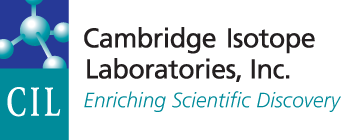The Standard – April 2023
Welcome to the April 2023 edition of “The Standard,” CIL’s newsletter for issues related to environmental, food, water, and human exposure testing. In this issue we highlight updates on per- and polyfluoroalkyl substances, flame retardants, pharmaceutical and personal care products, and France’s neonicotinoid ban. We hope you enjoy this issue, and be sure to check out our complete selection of stable isotope-labeled and native standards!
New Regulations in North America and Europe Increase Restrictions on More PFAS Compounds
Per- and polyfluoroalkyl substances (PFAS), the class of compounds dubbed “forever chemicals” due to their widespread presence and persistence in the environment, have been one of the most discussed classes of chemical pollutants in recent years. Exposure to PFAS has been associated with adverse health effects in humans, and regulatory agencies worldwide have been reviewing and implementing limits and/or bans to reduce the amount of new PFAS entering the environment, as well as human exposure for existing PFAS contamination.
Flame Retardants – Legacy and New Use Compounds
Flame retardants (FRs) are an important class of compounds added to many consumer goods, including electronics, furniture, and building materials to reduce flammability. There are several groups of FRs based on their chemical makeup, most notably those containing bromine, chlorine, phosphorus, nitrogen, metals, or boron. Brominated flame retardants have historically been the most abundantly used class, though many have been removed from the market due to environmental and exposure concerns, and newer use organophosphate or halogenated flame retardants have gained popularity as alternatives.
Pharmaceutical and Personal Care Products
Pharmaceutical and personal care products (PPCPs) are a class of products that include prescription and over-the-counter medications, as well as non-medical consumer chemicals used for personal health or cosmetic reasons. Concern about environmental and human exposure to PPCPs has grown significantly in recent years due to the prevalence in common household items and limited knowledge of exposure effects. There is significant concern about PPCPs in aquatic systems due to their persistence throughout the wastewater treatment process and ultimate discharge into surface water or groundwater.
France Ends Exemption Use of Neonicotinoids
In 2018, France became the first country in the European Union (EU) to ban all outdoor use of neonicotinoid pesticides, a class of chemicals that is harmful to bees and other pollinators. Shortly after, in 2020, an emergency exemption was approved for beet growers to use neonicotinoids to protect the crops from yellow virus transmitted by aphids, as alternative pesticides were proving to be ineffective. In January 2023, Agriculture Minister Marc Fesneau announced that France would no longer allow the emergency use of neonicotinoids on beet crops and would enforce the full ban originally enacted in 2018.1 This move reflects growing concern about the environmental and health impacts of agrochemicals, especially related to pollinators, as well as a shift toward more sustainable and eco-friendly farming practices.
